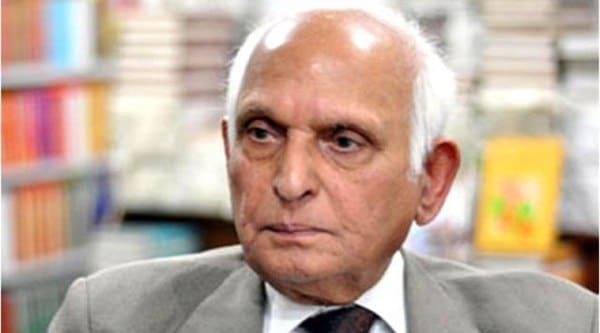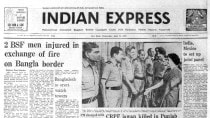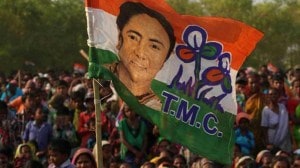- India
- International
An escape from ideology
Like Sheherzad of Arabian Nights, Intizar Husain tells stories without moral lessons
 Intizar traced his literary lineage to Meeraji, Manto and Muhammad Hasan Askari, all averse to mixing art with political ardor.
Intizar traced his literary lineage to Meeraji, Manto and Muhammad Hasan Askari, all averse to mixing art with political ardor.
Pakistani novelist Intizar Husain was awarded the French honour, Officier de L’Ordre des Arts et des Lettres (Officer of the Order of Arts and Letters), this year by Ambassador Philippe Thiébaud at a hotel in Lahore. After Manto, he is the best-known Pakistani writer in the world.
What kind of fiction does he write? In his own critique of literature in Dawn earlier this year, he wrote: “One big difficulty with our modern fiction is that it has developed a love for an intellectualised mode of expression. Perhaps it started with the emergence of the trends of symbolism and abstraction in our short story. Firstly, these trends had an intellectual attitude inherent in them. In addition, those were the years when Sartre was very much in vogue in our literary and intellectual circles. We discovered that a philosophy known as existentialism was associated with his name. This came to stay as an added charm to his literary reputation and it worked well with us.”
Intizar writes unpretentiously — an idiom that he spoke at home in Dibai, a village in Uttar Pradesh, has become the way of saying things in his work. What he shuns additionally is all ideology that hands down judgements and threatens civilisation. In his short speech of acceptance, Intizar traced his literary lineage to Meeraji, Manto and Muhammad Hasan Askari, all averse to mixing art with political ardor and who were often equated, barring Askari, with licentious paganism by their straitlaced leftist contemporaries. What he shared with the three was their nexus with the Western literary tradition and their passion for translation.
Of the five novels and hundreds of short stories Intizar wrote, one titled Basti was competently translated into English by Frances W. Pritchett and published by The New York Review of Books and later by HarperCollins in India. Had Manto survived, he could also have become familiar to readers of English instead of being posthumously “discovered” by the West in translation.
Manto didn’t have an interpreter like our enviably bilingual Muhammad Umar Memon editing the Journal of South Asian Literature in the United States, who took out a special issue on Intizar and later translated many of his short stories. Both Pritchett and Memon were lucky for Intizar. Memon succeeds in conveying the tough “internal” language Intizar speaks through his characters.

Pakistan’s literary personality number one has always aroused resentment at home and admiration abroad. Through his modern technique — absorbed when he was reading Western literature — which employed fables and rejected mythologies and religious symbols of extreme suffering and martyrdom, he produced a gloss on the Pakistani experience that, to his conservative and leftist compatriots, appears extremely unpatriotic and effete. In 2007, more mystified than offended, Pakistan gave him the third highest civil award, Sitara-e-Imtiaz, in deference to his international repute.
Some Pakistani men of letters are dismayed by his imperviousness to nationalism and revolution. After 1947, Lahore’s left found him cold. He stood aside when the progressive writers’ domination of the literary market imposed tenets of extreme political arousal. The right found him flaccid to their demands of ideology. The new writers thought his Urdu was funny. When India-centric nationalism peaked, friends found Intizar walking around in his personal bubble of nostalgia about his old home in “enemy” India.
Memon provided the key to understanding the inner world of Intizar in his classic paper, “Shi’ite Consciousness in a Recent Urdu Novel: Intizar Husain’s ‘Basti’” (1989). Intizar harks back to the utopia left behind in 1947 through his hero named Zakir — which means “one who recalls” — and makes him experience the post-1947 dystopia of Pakistan. Basti was a rebound from the trauma of the state’s breakup in 1971. He was to write his next rebound novel, Naya Ghar, after the equally depressing “consolidation” of the state by General Zia-ul-Haq.
Intizar absorbed Dibai’s dialect in his Urdu fiction, making it intimate and outlandish at the same time. When he visited his ancestral home some years ago in Dibai, he was shocked to find it so small. What put off his fired-up-by-communal-riots contemporaries in the newly created Pakistan was his frequent reference to Hindu mythology and fables extracted from such ancient classics as the Panchatantra.
In his collection of short stories Sheherzad Kay Nam — the maiden whose storytelling created the Arabian Nights — he deployed an aggressive defence against the ideological onslaught that emasculated literature in Pakistan and caused the ideologues to froth at the mouth. Why doesn’t good literature come out of the martyrdom of extremists in Afghanistan and Kashmir?
Intizar’s characters reply: “But haven’t you read the history of the Muslims?” In Panchatantra, geedars (jackals) dunked themselves in false colours to appear as lions and presumed to produce a regimented society with stiff laws, but are discovered as geedars and not the kings of the jungle they pretended to be. He applies the geedar simile to the progressives who wanted to usher in revolutions and to the fundamentalists who wanted to induct literature into jihad. Somehow, “geedar” is extremely pejorative in Urdu, as the English “jackal” can never be.
The rightists wanted him to produce moral (maqsadi) literature. Intizar’s fables were nothing of the sort. Helplessly, he appeals to Sheherzad of the Arabian Nights, who just told stories without moral lessons and in so doing saved the daughters of the realm from being put to death. After the king stopped the practice of killing his brides and took her as his queen, she simply dried up.
Intizar’s Panchatantra birds, Kalila and Dimna, talk about ravens who taught other birds the savage art of trampling on the rights of others in imitation of human beings. One story the ravens tell of the hummingbirds taking on the ocean portrays the hubris of the state when it takes on adversaries it can’t begin to confront. Defeat is selected and suffered, but its fallout envelops only the underprivileged, who take to the streets shouting the very slogans that prescribe unequal wars that crush them.
Intizar mourns his own drying-up because he can’t tell stories with a moral ending. He escapes into the landscape of his memory and scans a civilisation that is no more, towns and streets that report life as lived by true human beings now divided by national frontiers.
Is he living in fantasy, is he adopting escapism as literature? He thinks it is better this way because if he wasn’t dreaming, he would be hauled up from his little dream village for not possessing a passport with a visa stamped on it.
His monkeys of Mahaban are violent and grotesquely imitative. They want to be what their nature doesn’t allow. These civilisational monkeys have come to a bad end in Pakistan. Intizar Husain, with his Panchatantra under his arm, dreads drying-up because no one wants to hear the stories he gives birth to.
The writer is with ‘Newsweek Pakistan’
EXPRESS OPINION
More Explained
Apr 26: Latest News
- 01
- 02
- 03
- 04
- 05











































